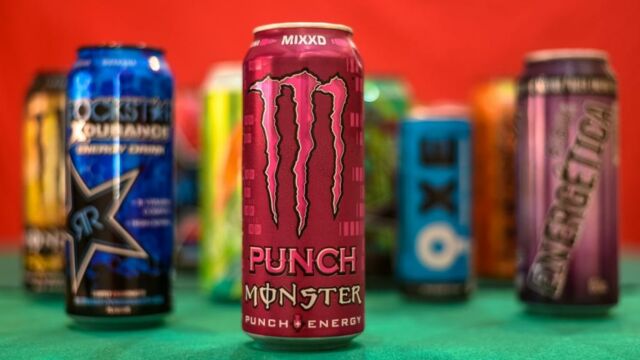Working out: This is the truth about whether energy drinks are really effective

Energy drinks are touted as miracle beverages for rapid recovery after physical exertion. Let's find out what's real and what's not, and above all... What about water?
Electrolytes are the mineral salts circulating in the blood - sodium, potassium, calcium and magnesium - which help nerve and muscle function, ensure a good balance of acids and maintain the equilibrium of our fluids. They are contained in significant quantities in isotonic drinks, also known as energy drinks, which are appreciated by people who work out, seeking hydration and faster physical recovery after heavy exertion.
Discover our latest podcast
Isotonic drinks are for athletes
Are isotonic drinks really necessary? Not really, according to Lauren Cadillac, an American dietician who explained to Women's Health that you only need to drink water to be properly hydrated, unless you're exercising for more than an hour. Energy drinks are mainly intended for professional athletes who put in regular, heavy effort.
More under this adMore under this adFor amateur people working out who sweat a lot, they can also be useful, as perspiration essentially contains sodium, an electrolyte contained in these isotonic drinks.
But if your idea of sport is that you only go out on Sundays when the weather is fine and cloudless, you'd better go for water. The effort you'll be putting in may not be so intense that you'll need these drinks.
More under this adMore under this adRead more:3 strange sports you didn't know existed
Drinks containing too many electrolytes are harmful to health
Otherwise, there's no need to take electrolytes, which in high doses can have adverse effects on the body. Dr. Cadillac told Women's Health:
Excessive potassium intake can cause hyperkalemia, which leads to nausea, irregular pulse, cardiac arrhythmia and impact on liver function.More under this adMore under this ad
The same is true of too much sodium, which can cause hypernatremia, leading to vomiting, diarrhea and dizziness.
So, if you want to stay hydrated after exercising or making a sustained effort, just drink water and eat healthily after your session - that's all you'll need. After effort, comfort.
Read more:Healthiest drink options for breakfast
Electrolytes can be found in a healthy diet
If you eat a balanced diet and don't engage in strenuous physical activity, you're probably meeting your electrolyte requirements through your diet. Bananas are rich in potassium, avocados, sweet potatoes and spinach contain potassium, while calcium comes from dairy products, salmon, seeds and almonds. Magnesium is found in dark chocolate, nuts and vegetables. Finally, sodium (otherwise known as salt) is essentially present in everything we eat.
More under this adMore under this adIn conclusion, there's no need to take isotonic drinks unless you're doing intensive sport, and a healthy, balanced diet is enough to provide all the electrolytes your body needs.
Read more:This tea can dangerously increase your risk of lung cancer, here's why
This article has been translated from Gentside FR.
Source used:
Women's Health: What Are Electrolytes, And Do I Really Need To Replenish Them On The Reg?